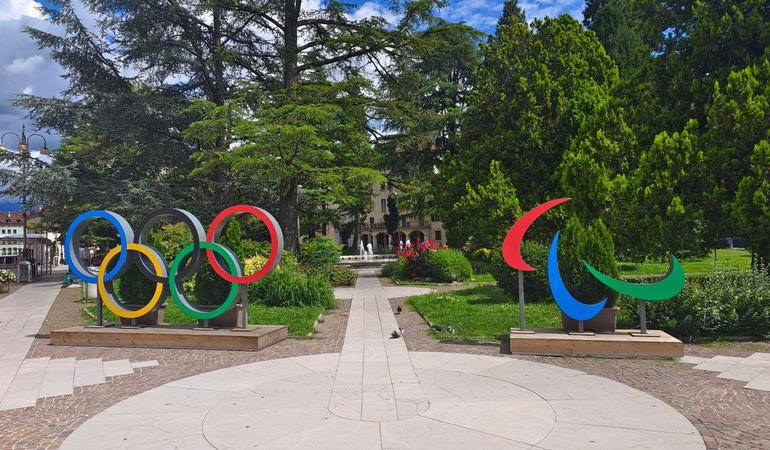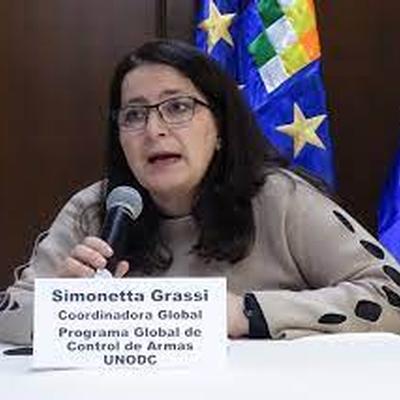
Milano-Cortina. Ecco come verranno spesi i 450 milioni di euro delle paralimpiadi


9 febbraio 2023
The trafficking of firearms, is a ubiquitous, multidimensional phenomenon connected with many other forms of crime. All criminals use weapons, so the immediate impact of firearms trafficking can be measured by looking at homicide rates. The Global Study on Homicide, carried out in 2019 by UNODC-United Nations Office for Drug Control and Crime Prevention, showed that more than 50 percent of all homicides worldwide are committed with a firearm. According to the 2020 Small Arms Survey, the victims of firearms outside armed conflicts outnumber war casualties.
Combating firearm trafficking therefore means combating organized crime. A weapon can be the instrument with which a crime is committed, the object of an exchange, and sometimes a tool to fund terrorism, for example in Africa. Yet many governments still view this problem as an isolated phenomenon. In part, this is due to a big knowledge gap: many countries keep statistics on seized weapons, but not all of those have been trafficked in the first place. In some parts of the world, for example, confiscated weapons are stolen from government warehouses and sometimes end up back in the criminals’ hands because of corruption.
Another reason why governments struggle in dealing with the trafficking of firearms is that tracking weapons is hard after they leave the legal circuit. Unlike drugs, firearms in most cases are legally manufactured and traded, and only later enter the illegal market.
The fight against transnational organized crime, an urgent matter
Most firearms are seized in criminal contexts not connected with trafficking. According to UNODC’s 2020 Global Study on Firearms, in many cases what leads to confiscation is illegal possession. In other terms, for the authorities it is easier to confiscate firearms from their rightful owners and prosecute crimes than to start an investigation into the weapon’s origin.
On the one hand, UNODC supports countries in adopting legislation and practical measures to ensure better traceability of firearms, for instance marking them and establishing registers and inventories that make it possible to trace a firearm from its manufacturing all the way to its destruction. On the other hand, UNODC supports investigators worldwide and works hand in hand with them to make sure that the trafficking is prosecuted. The exchange of information is quintessential to this international cooperation among governments, not least because it is not always the mafias that are responsible for the trafficking of firearms: often it is other criminal groups, that may go unnoticed unless properly investigated.
A convention against transnational organized crime signed in Palermo, not by chance
UNODC periodically administers a questionnaire to governments asking how many of the firearms they seized have actually been traced, and how often they have been able to trace weapons after they left the legal circuit. The results are generally limited, in part because of the complexity of such investigations, and in part because the authorities do not make in their priority to investigate and pursue arms trafficking.
Furthermore, only a few States have made the trafficking of firearms a crime, and not all have ratified the third protocol of the Palermo Convention, dedicated precisely to the illegal manufacturing and trafficking of weapons and ammunition. It is not by chance that UNODC’s former executive director Antonio Maria Costa has dubbed that document, ‘the orphan protocol,’ as thus far it has only been ratified by just 122 of the 190 countries that took part in the Convention, and among those that failed to ratify it there are some important ones.
There are no extraordinary provisions in the protocol, just minimum measures meant to enable governments to maintain control over firearms, prevent their disappearance from the legal circuit as much as possible, trace them, and investigate whenever they surface on the illegal market.
The goal of combating the trafficking of firearms is not only at the heart of the Convention and its protocols: it is also mentioned in the UN’s 2030 Agenda for Sustainable Development, approved in 2015. Its signatories have pledged to significantly reduce illicit arms flows, strengthen the recovery and return of stolen assets, and combat all forms of organized crime by 2030.
This text is taken from the author's speech held on the occasion of "CROSS - Civil society in the fight against global mafias from the Palermo Convention to today", a meeting organized by Libera in Palermo on 28 and 29 October 2022
La tua donazione ci servirà a mantenere il sito accessibile a tutti
La tua donazione ci servirà a mantenere il sito accessibile a tutti